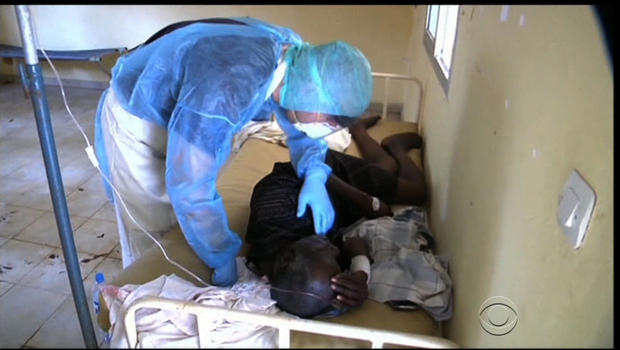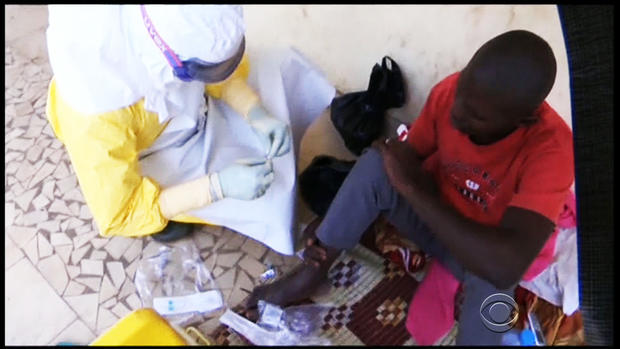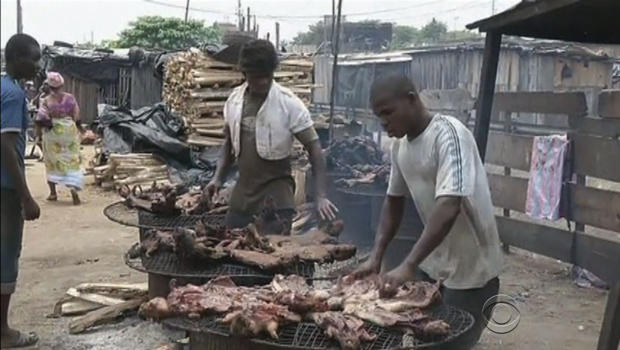Ebola breaks out on a scale never seen before
Nearly 40 years after first striking fear with a painful, grotesque set of symptoms, the Ebola virus has now killed at least 88 people in the West African countries of Guinea and Liberia.
And the worry is: It could get a lot worse.
It is a terrifying virus, highly infectious, quick to kill, with no vaccine and no cure. Doctors in Guinea are dealing with the most aggressive strain. Only one out of ten victims survives.
Michel Van Herp, an epidemiologist for the aid group, Doctors Without Borders, said that they were facing an epidemic on an unprecedented scale -- not in numbers of victims, but because the cases are so spread out in Guinea and across its borders. The only way to stop Ebola is to find and isolate everyone who has come into contact with it.
The virus, which causes vomiting, diarrhea, bleeding and eventually organ failure, spreads through contact with body fluids. Doctors Without Borders is setting up quarantine clinics, but they're battling against a suspicious and scared public.
The 1995 movie Outbreak showed an Ebola-like virus spreading through a fictional California town, while the real virus killed off nearly an entire village in the Democratic Republic of Congo.
"You have a lot of people who have recovered from civil war and are living in war-ravaged areas with very poor infrastructures," said Laurie Garrett, a senior fellow for global health with the Council on Foreign Relations. "Well as soon as word goes out of quarantine, you have people start trying to escape and get away from the clutches of authorities."
Guinea is trying to cope with the threat by banning bushmeat from bats, monkeys and apes, a possible source of Ebola, and educating the public on how to stay alive.


